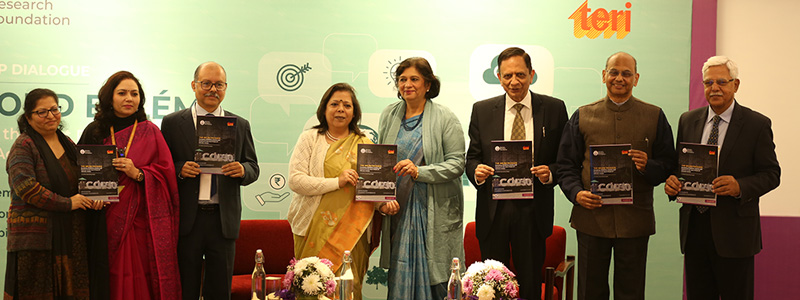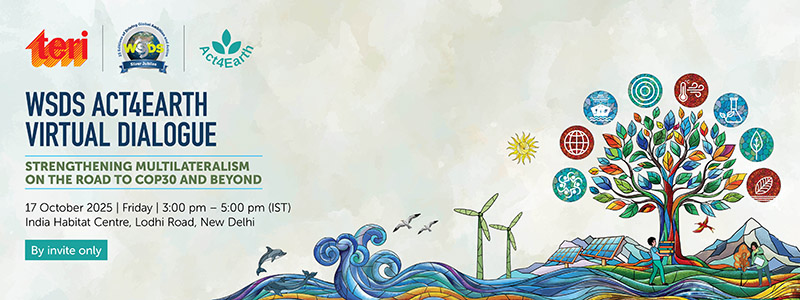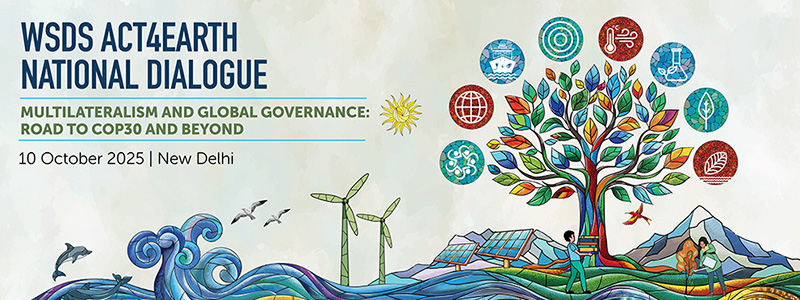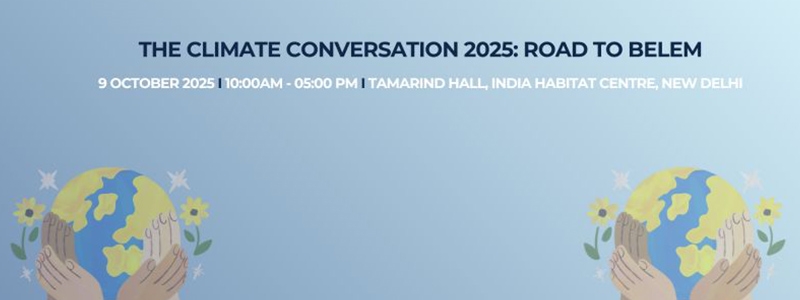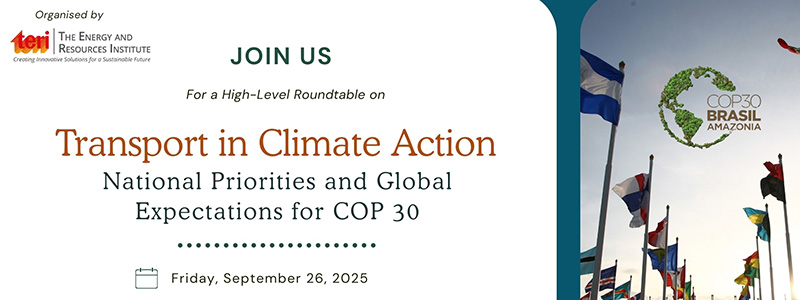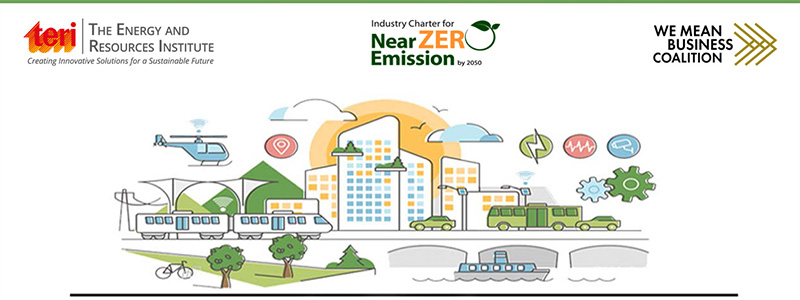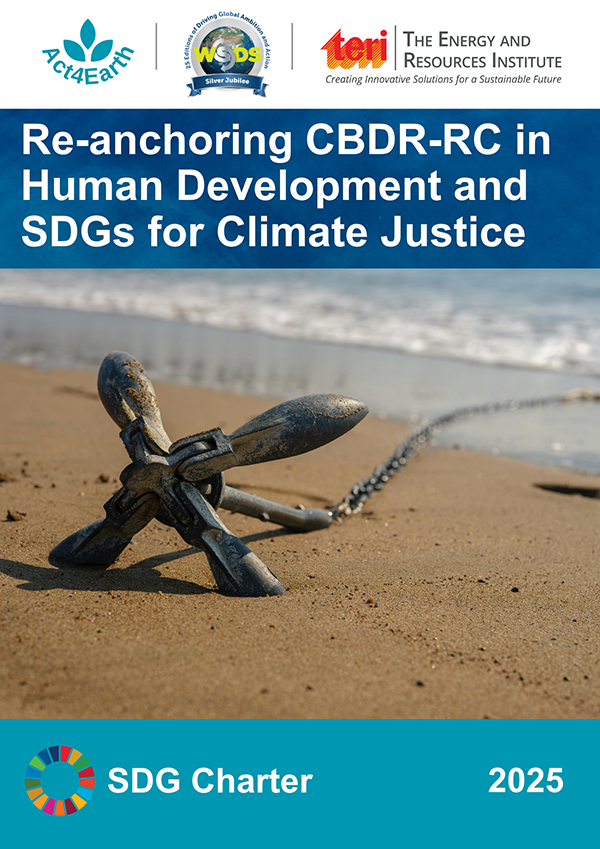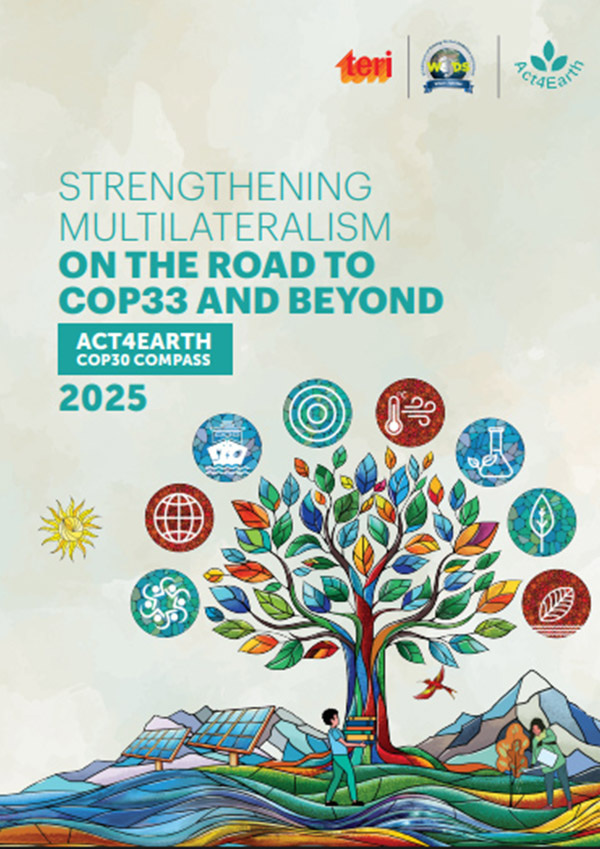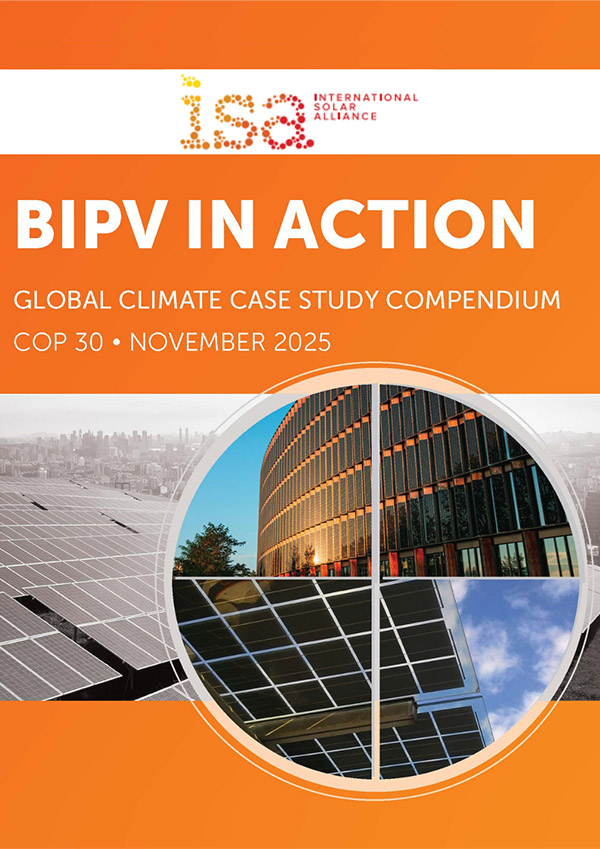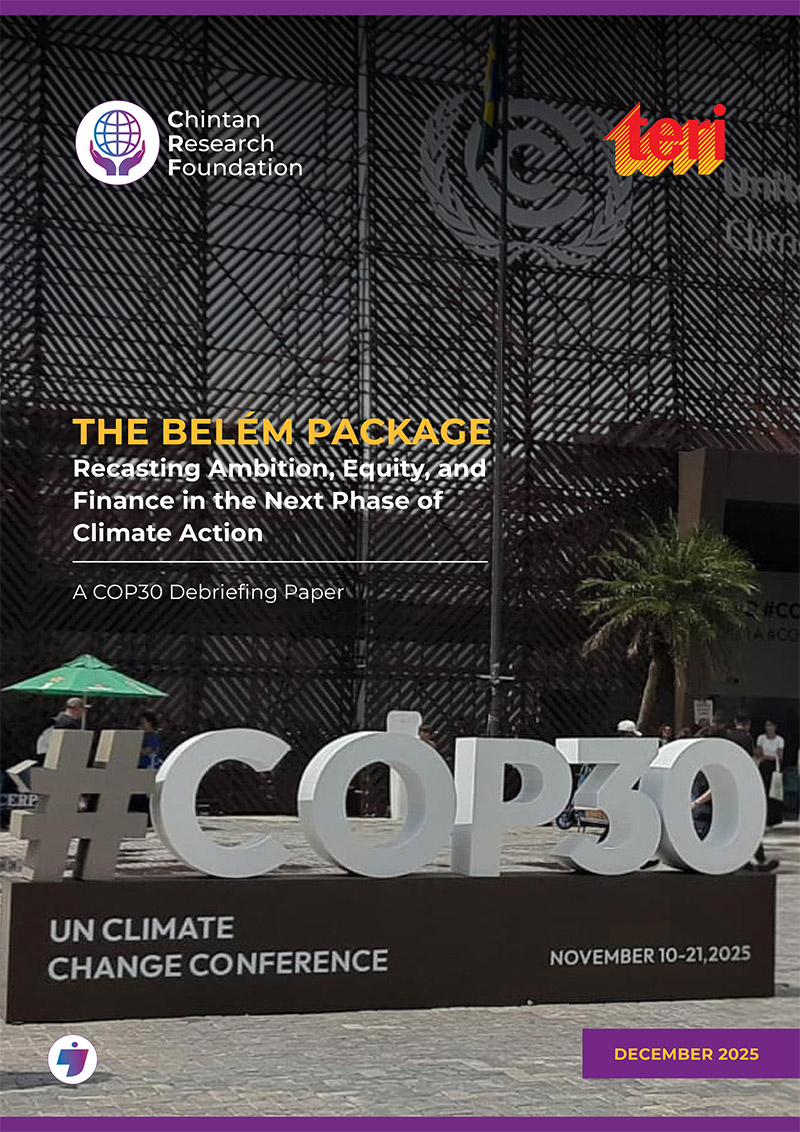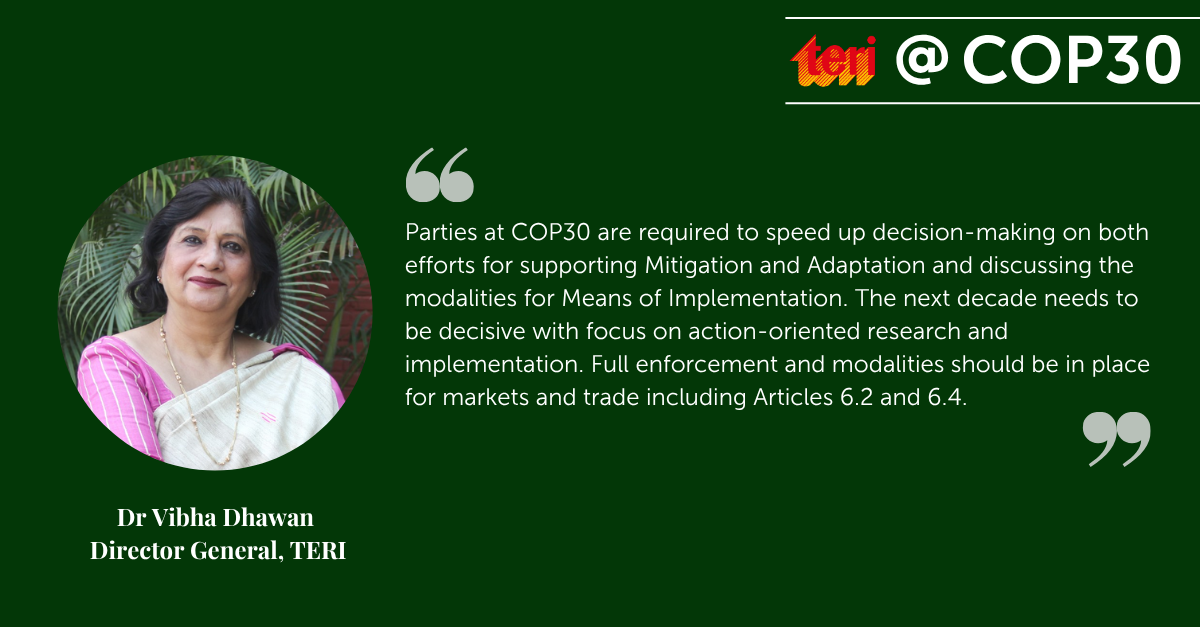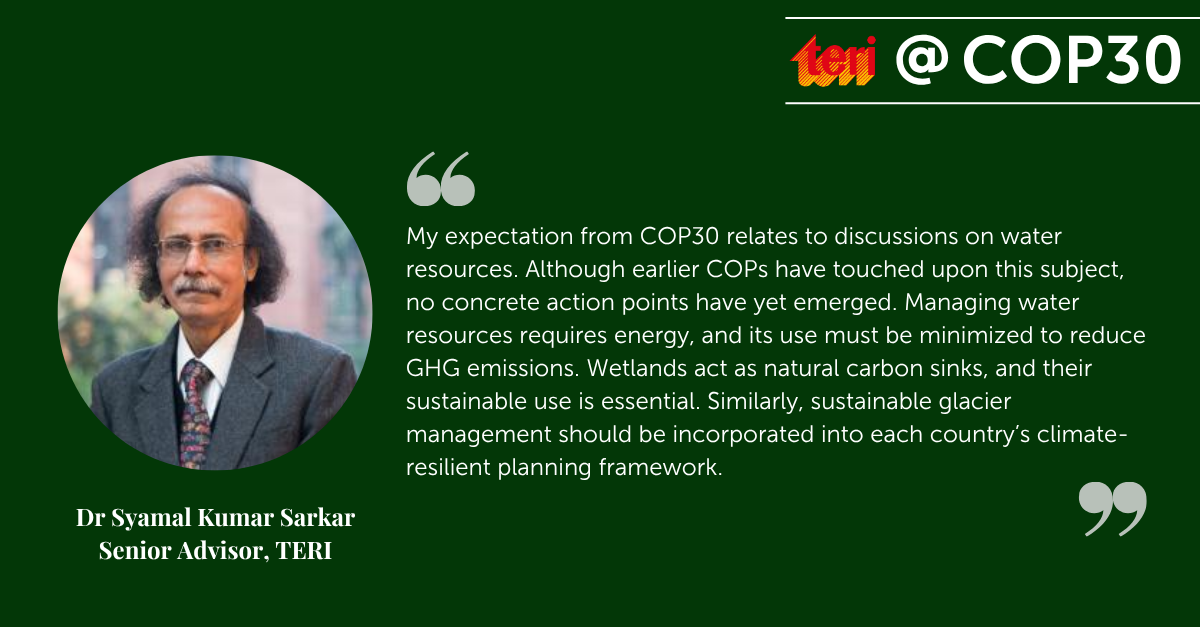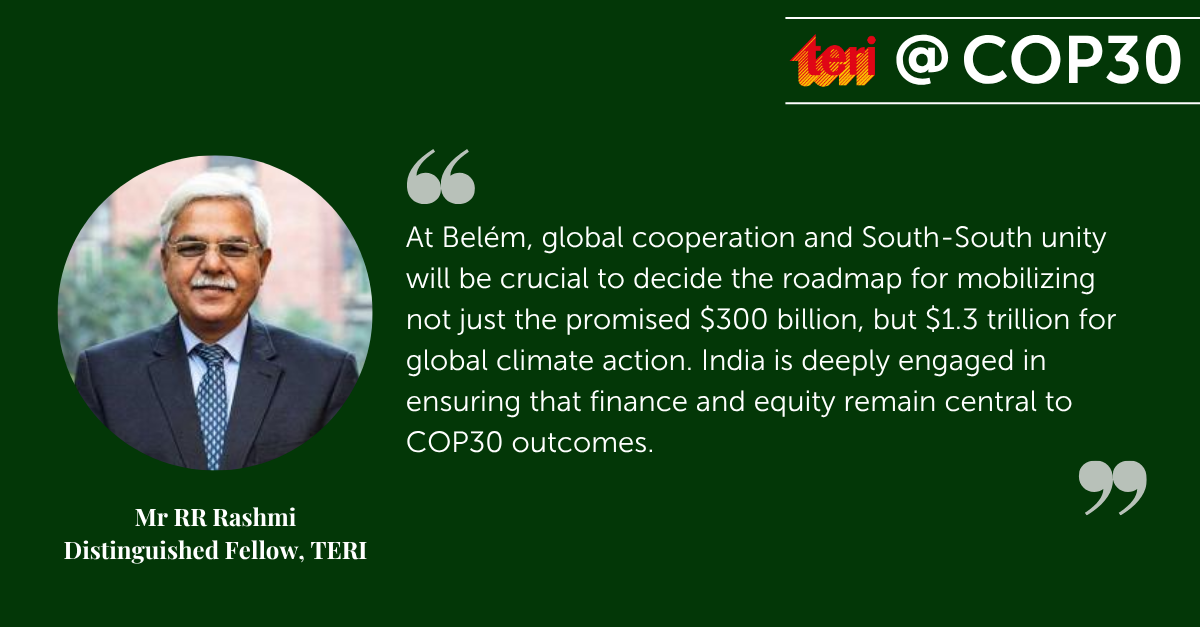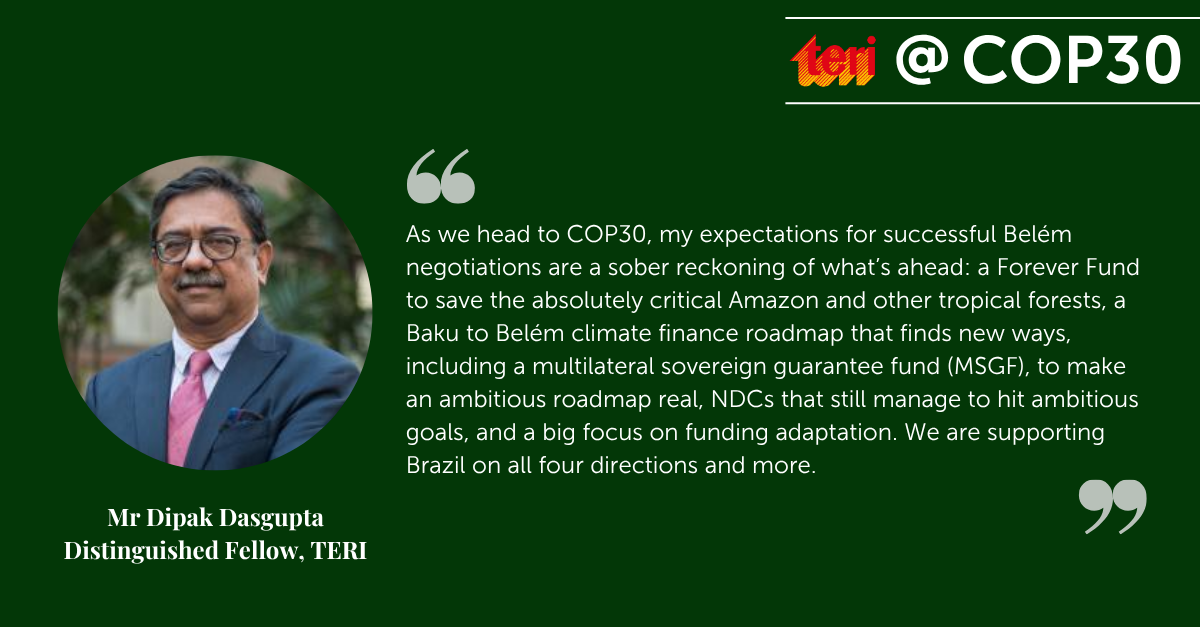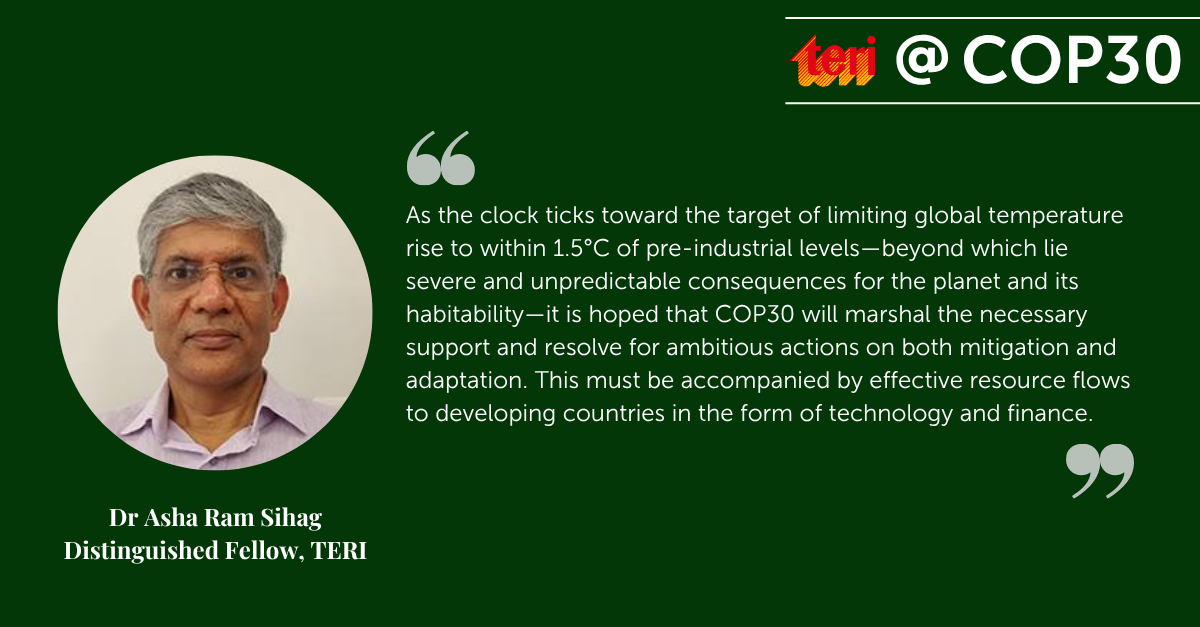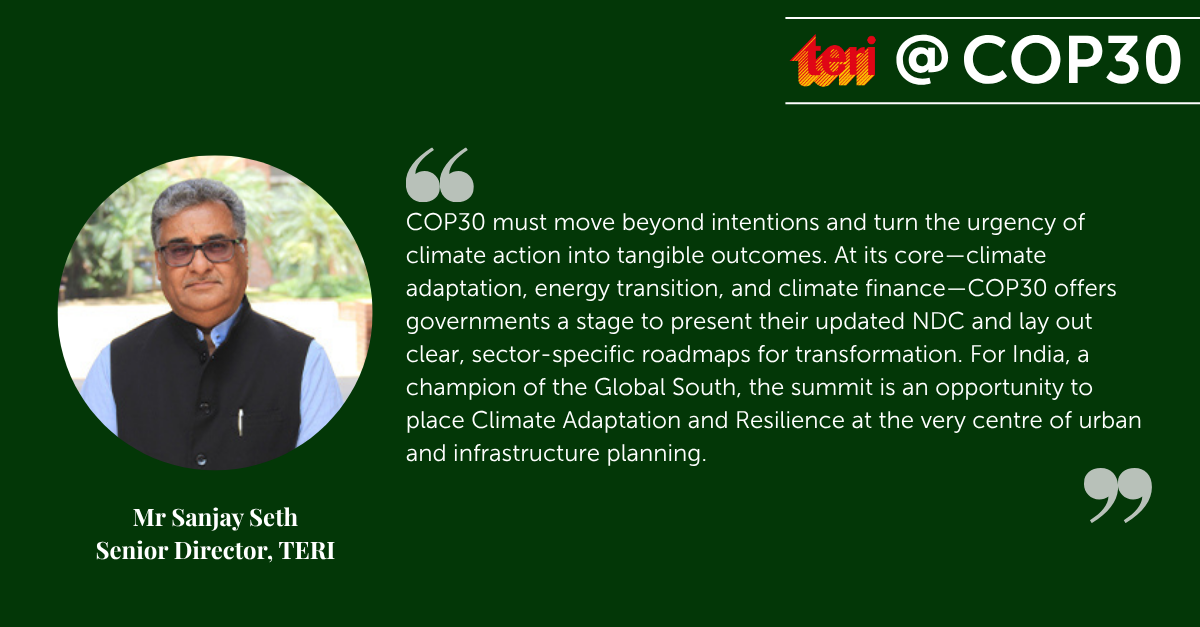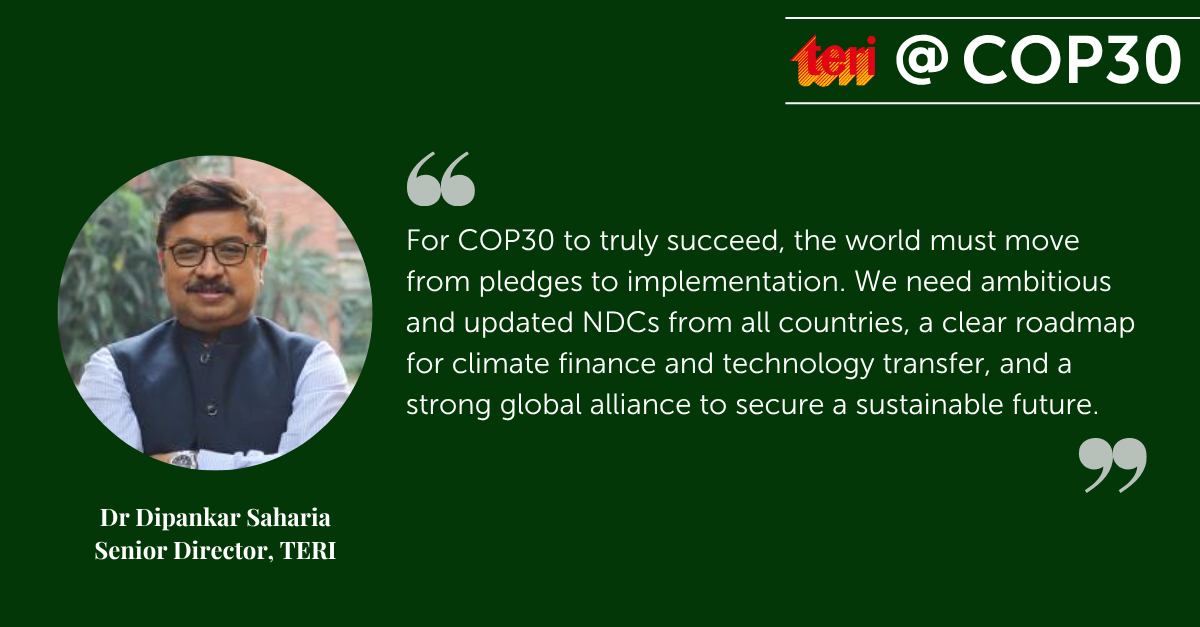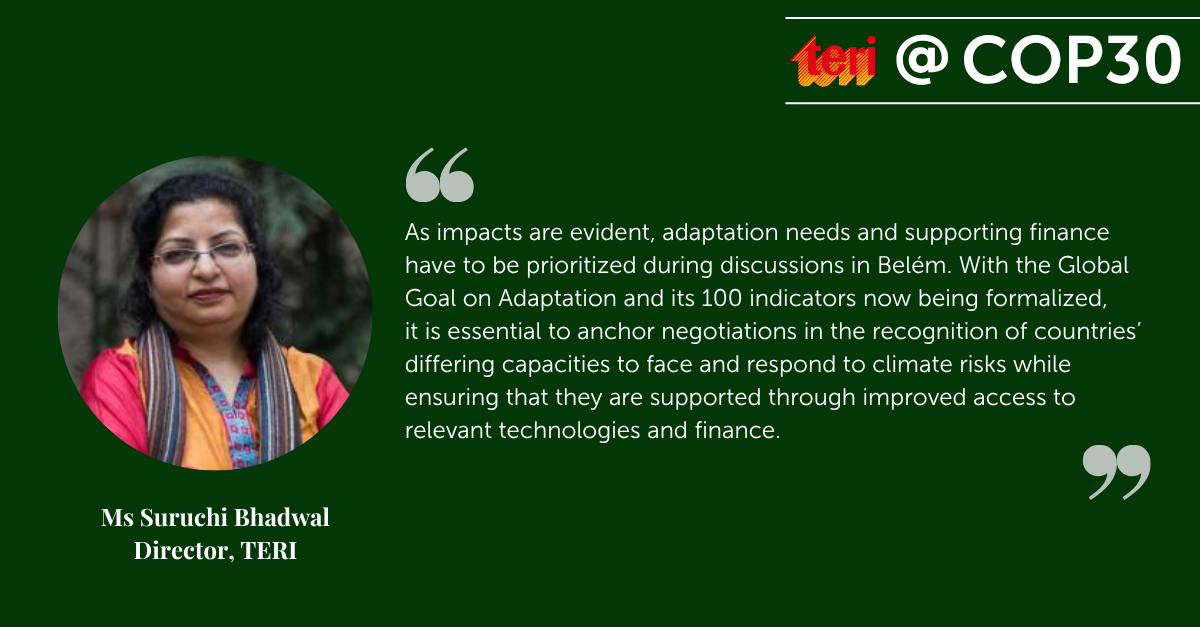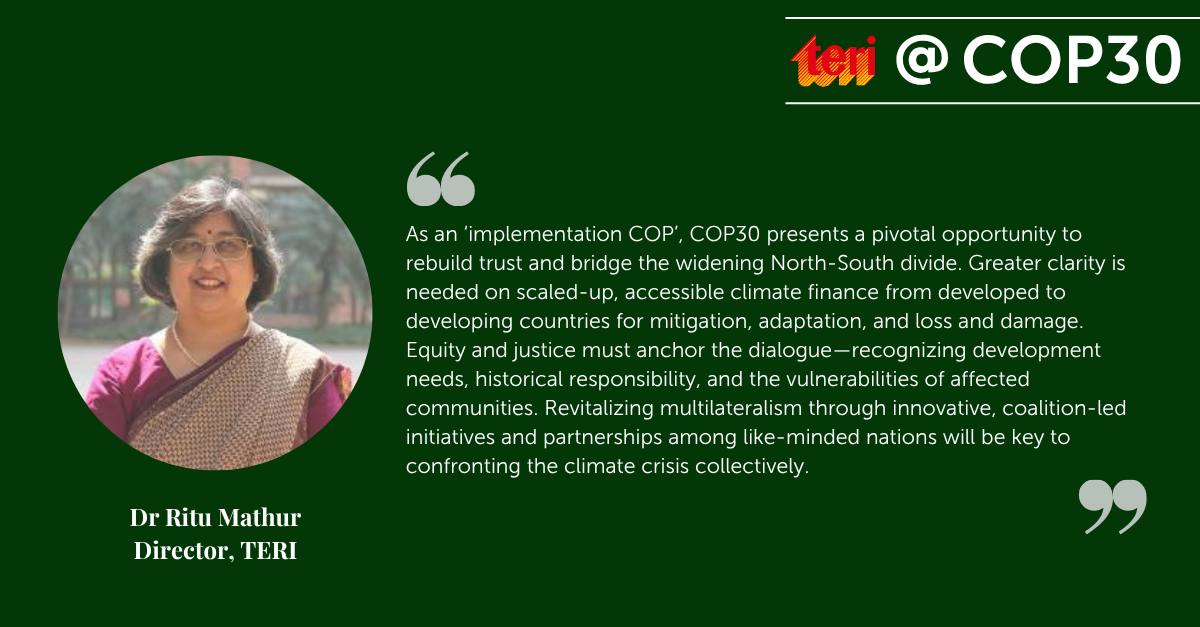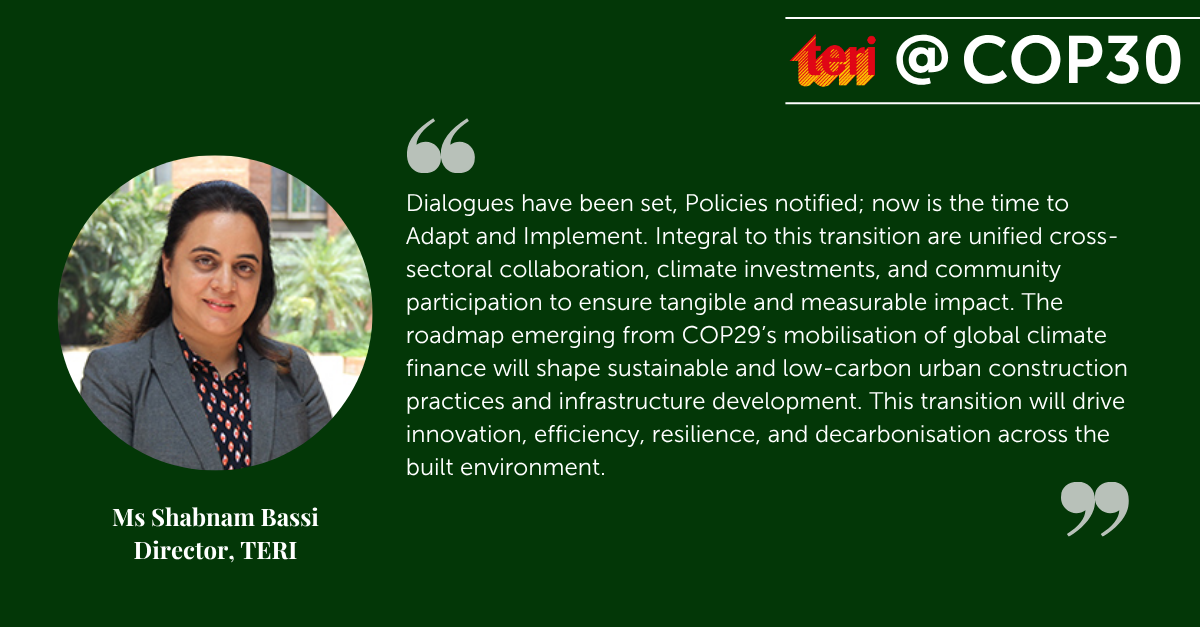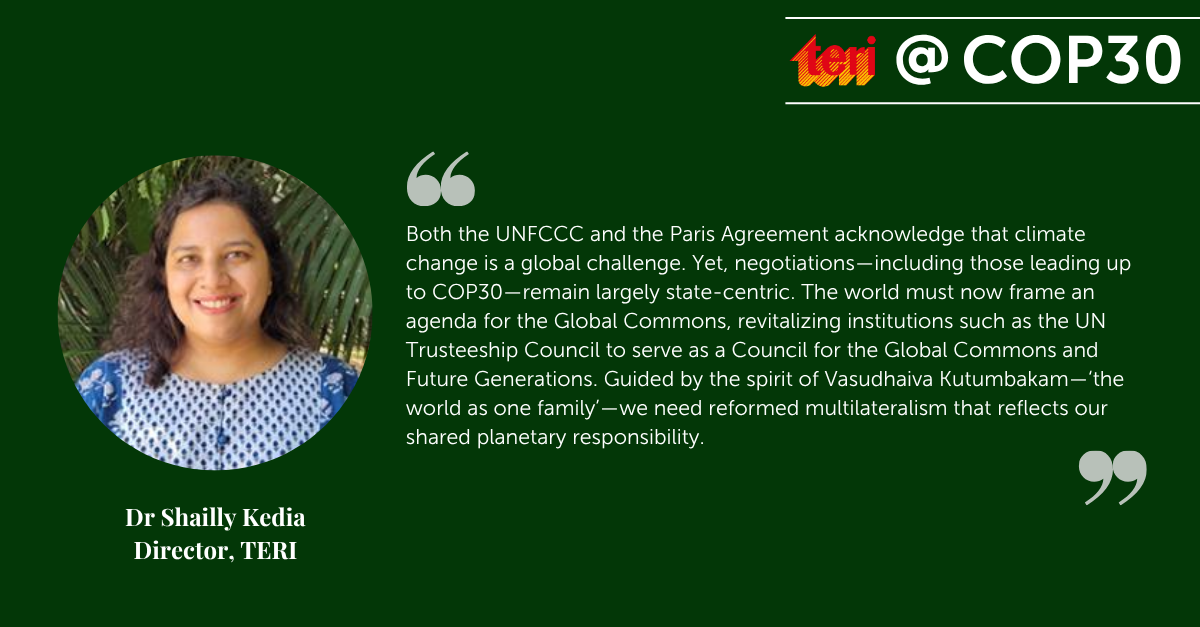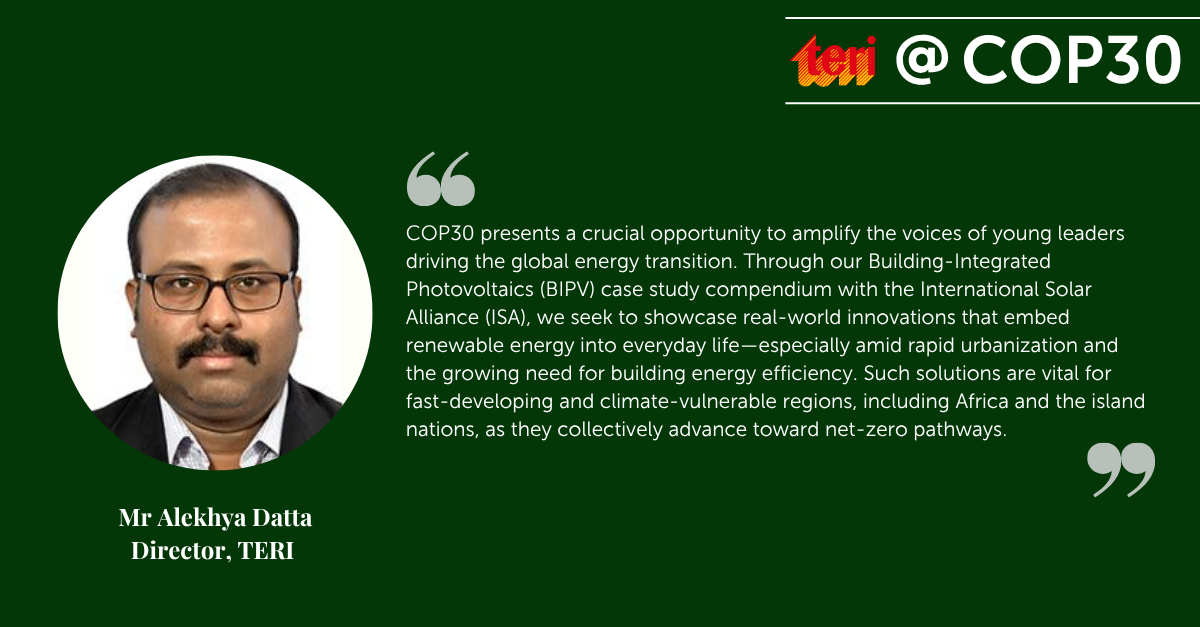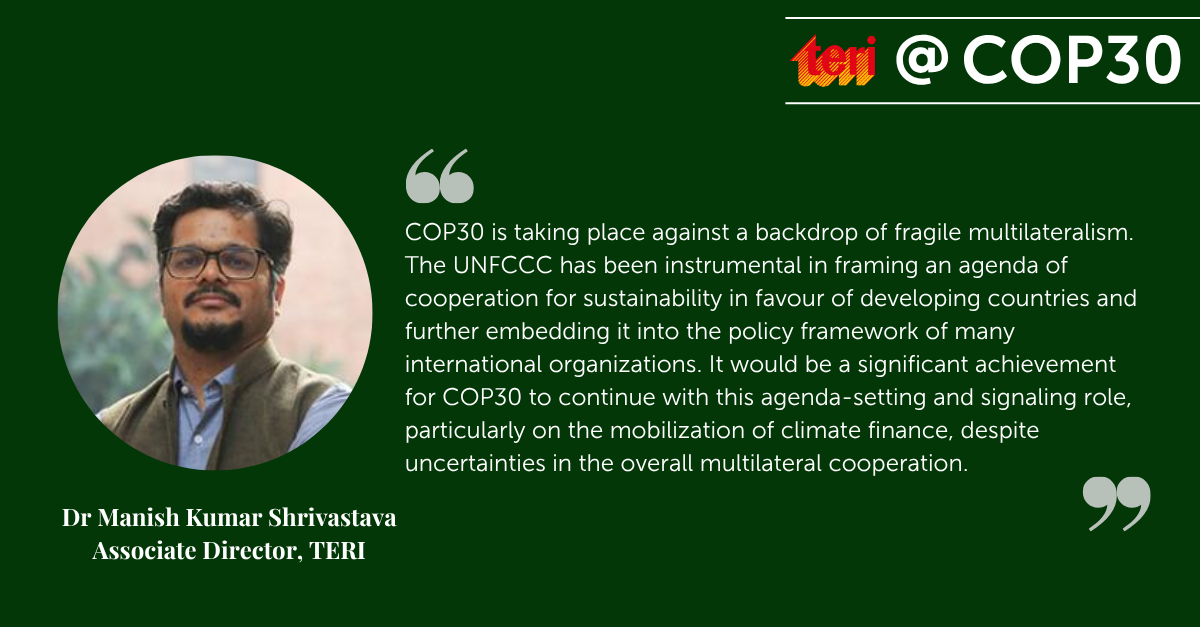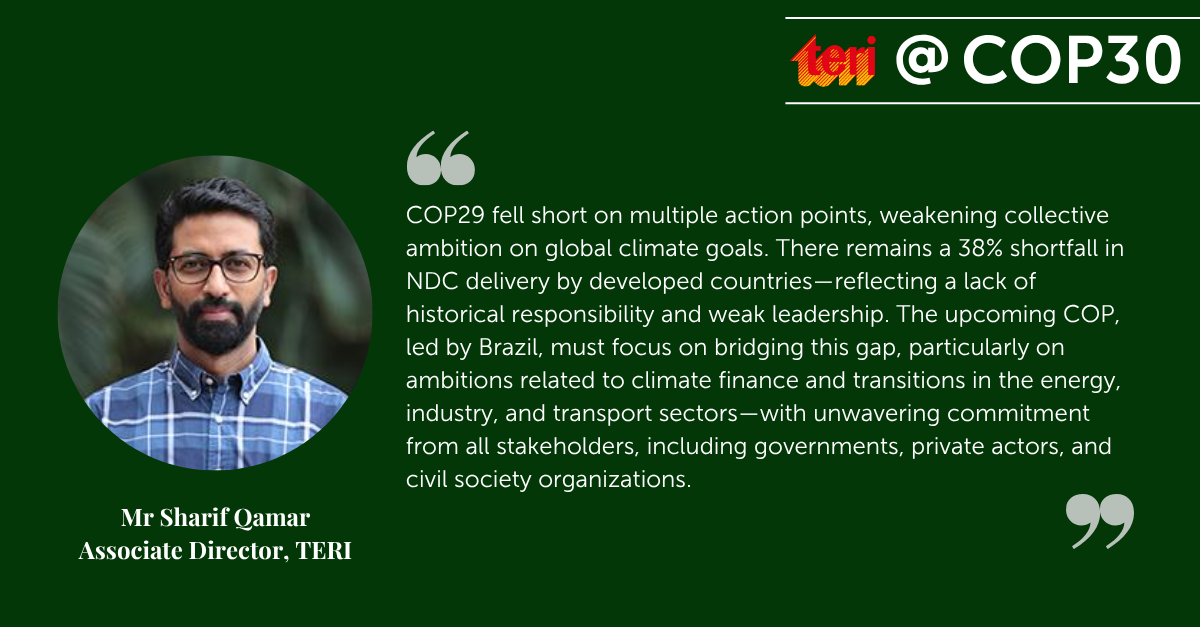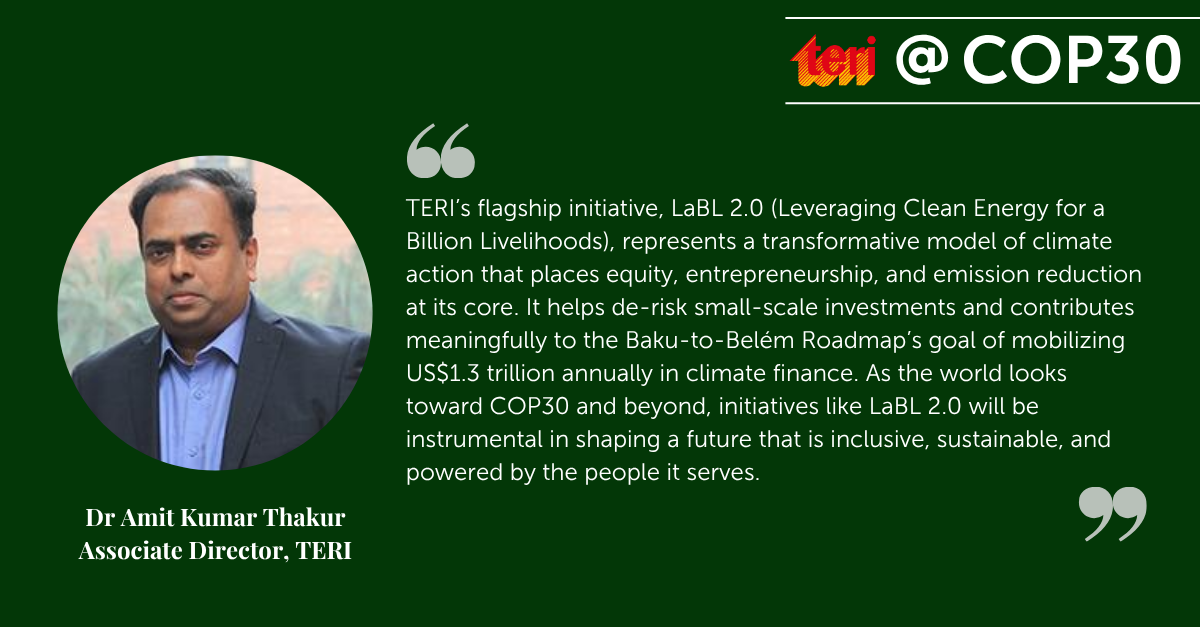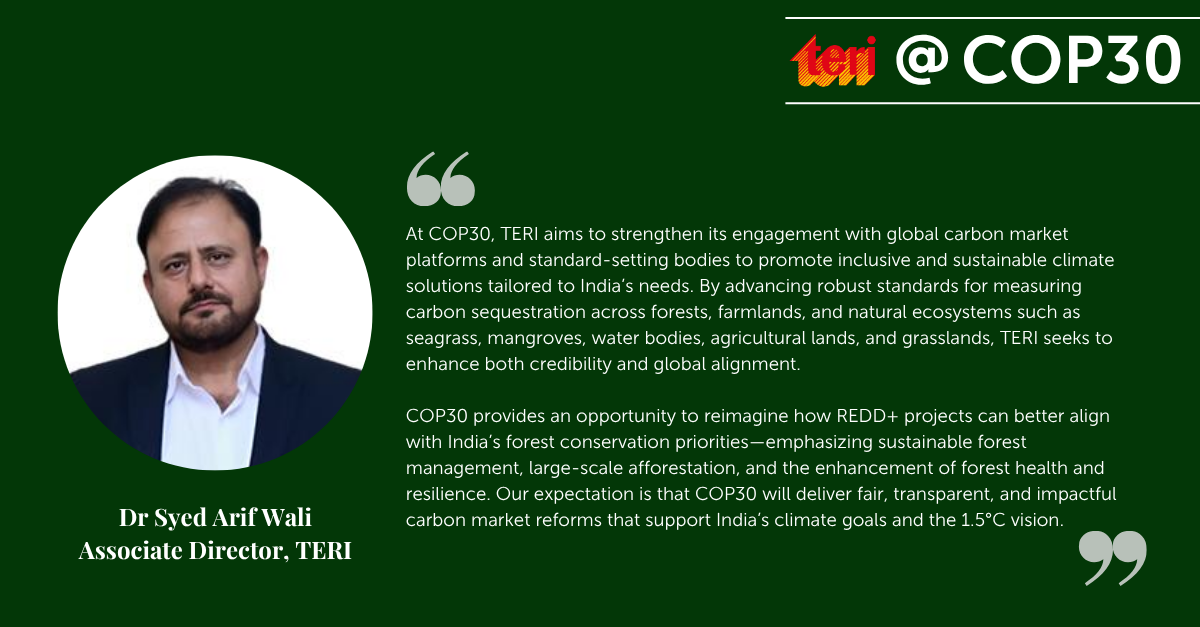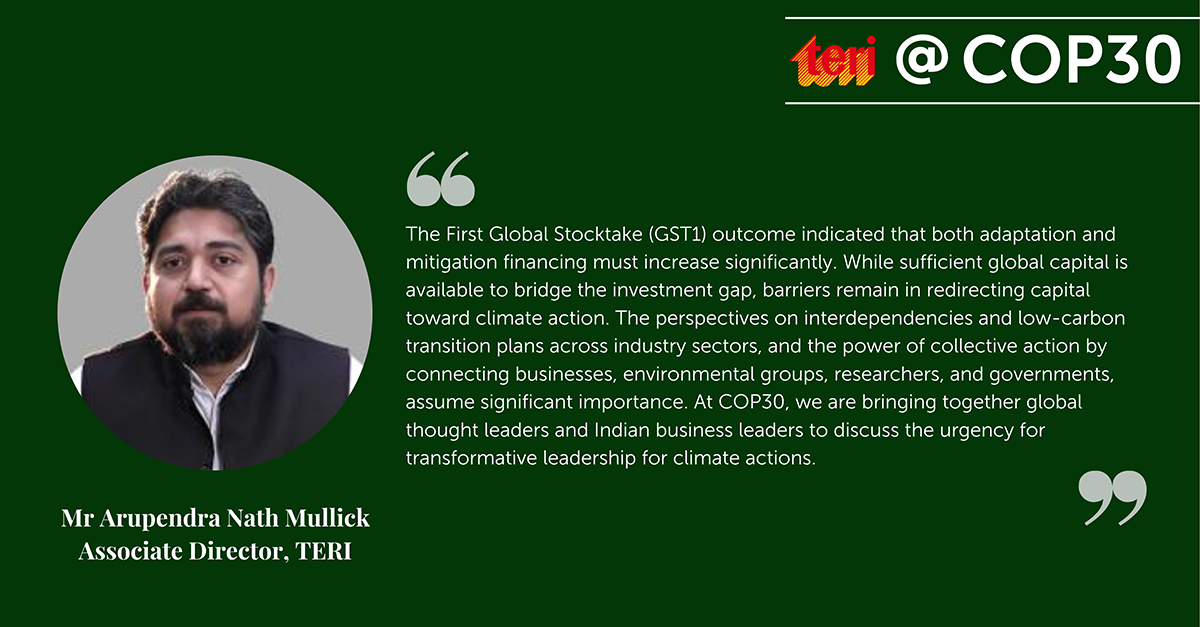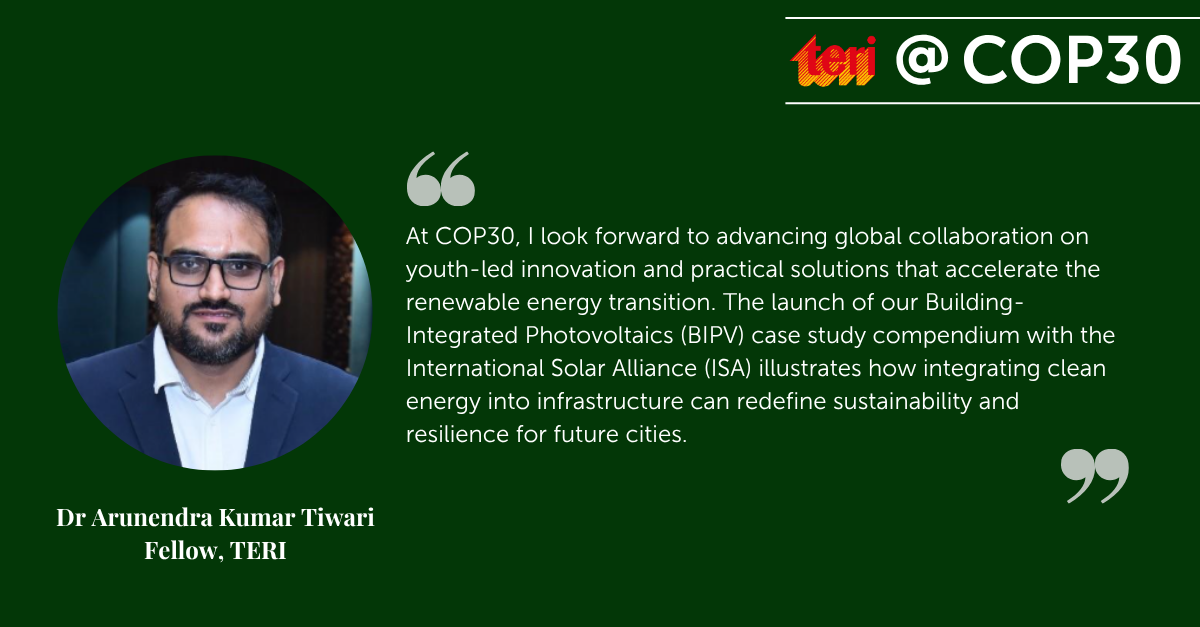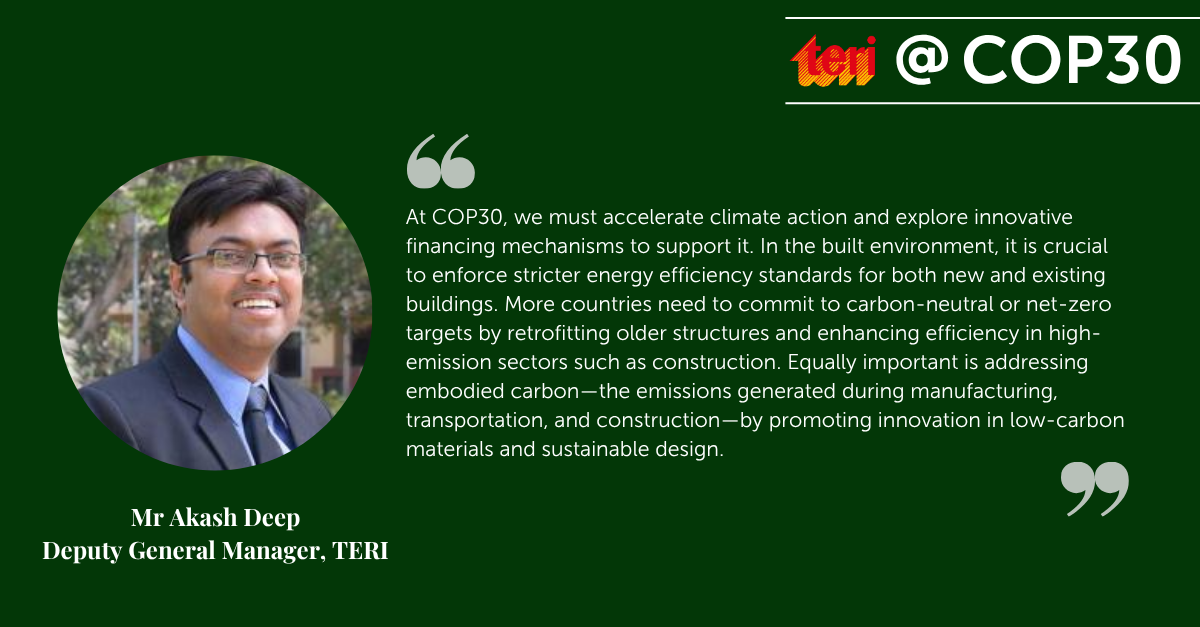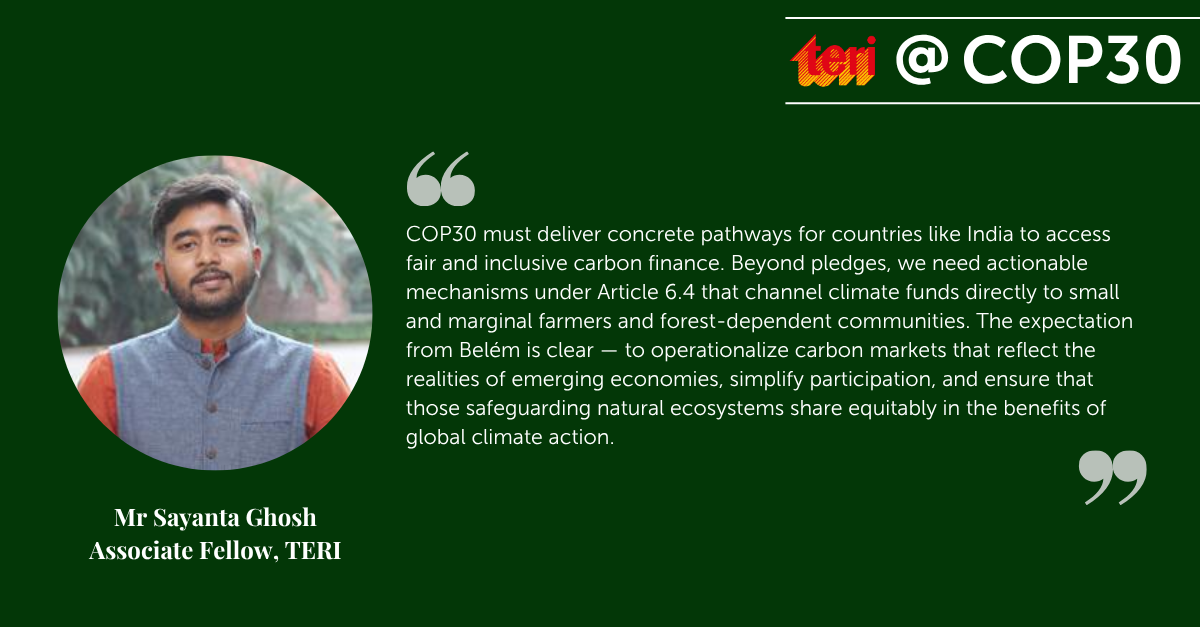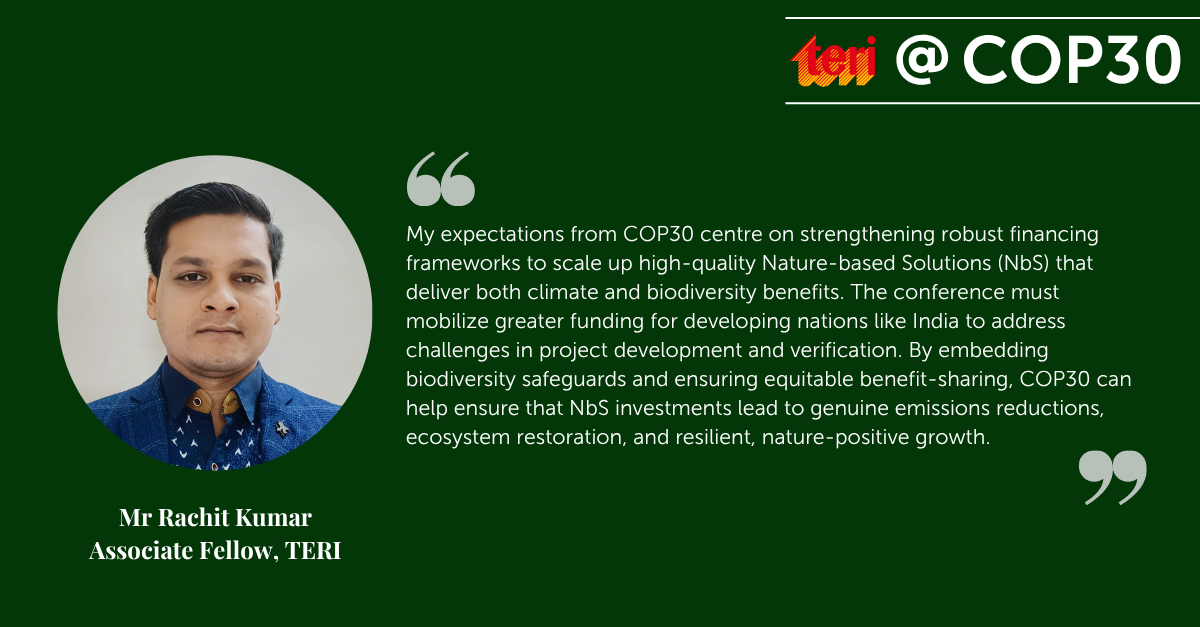
The 30th United Nations Climate Change Conference (COP30) will be held in Belém, Pará, Brazil, from November 10 to 21, 2025. This summit will bring together over 190 countries to accelerate implementation of the Paris Agreement and address pressing climate challenges. Under the presidency of Brazil, COP30 aims to connect negotiations with real-world climate impact, ensuring that lived experiences translate into urgent climate action.
COP30 President, Ambassador André Corrêa do Lago, has emphasized that accelerating adaptation to climate change will be a key focus of the conference. Speaking at the event “Adaptation as a Priority for COP30” organized by the Talanoa Institute, he highlighted that the effects of climate change are already tangible and that increasing resilience must be integrated into public policies.
COP30 will focus on equitable adaptation, resilience building, and adaptation finance, including doubling adaptation finance by 2025 and advancing the Baku-Belém roadmap, aiming for $1.3 trillion in climate finance by 2035.
A key aspect of COP30 will be the delivery of ambitious Nationally Determined Contributions (NDCs), aligned with the 1.5°C target. Countries will take stock of their progress through the Global Stocktake, identifying bottlenecks that hamper implementation and stimulating dialogue on how to enhance mitigation, adaptation, and climate finance.
India, as one of the leading developing nations, is well-prepared to update and enhance its NDCs. Building on its G20 leadership and ongoing climate policies, India aims to strengthen renewable energy deployment, enhance energy efficiency, and advance adaptation and resilience measures, reflecting a comprehensive approach that integrates mitigation, adaptation, and sustainable development.
Key Takeaways from COP30
Dr Vibha Dhawan, Director General, TERI
There was progress, particularly with the agreement on the Belém Action Mechanism, which underscores Just Transitions, equity, and CBDR-RC—principles central to the UNFCCC and vital for advancing climate action. However, gaps remain, especially around clarity on financial support and the need to raise ambition on climate finance. The absence of a clear call for phasing out fossil fuels, despite references to tripling adaptation finance, also left many concerns unaddressed.”
Ms Suruchi Bhadwal, Director, TERI
Ms Shabnam Bassi, Director, TERI
Dr Shailly Kedia, Director, TERI
Dr Manish Kumar Shrivastava, Associate Director, TERI
TERI’s flagship initiative, LaBL 2.0 (Leveraging clean energy for a Billion Livelihoods), a transformative model is aligned with the outcomes of the COP30 which focuses on climate action that places equity, entrepreneurship, and emission reduction at its core.
As the world moves beyond COP30, initiatives like LaBL 2.0 will be instrumental in shaping a future that is inclusive, sustainable, and powered by the people it serves.”
Dr Amit Kumar Thakur, Associate Director, TERI
Mr Sharif Qamar, Associate Director, TERI
COP30 offers a timely moment to re-envision REDD+ in line with India’s forest conservation priorities. Strengthening sustainable forest management, accelerating large-scale afforestation, and improving forest health must form the core of future climate and carbon strategies. The launch of Equitable Earth’s new methodology—formally recognizing forest degradation—helps break the long-standing deadlock in REDD+ carbon finance and enhances the credibility of nature-based solutions, while unlocking greater community benefits.
Importantly, COP30 recorded progress under Article 6.4 of the Paris Agreement through clearer guidance on methodologies and safeguards for the UN-supervised carbon market mechanism. These improvements are expected to enhance transparency, ensure environmental integrity, and open more reliable pathways for high-quality carbon finance for countries like India.”
Dr Syed Arif Wali, Associate Director, TERI
There was also renewed focus on the built environment and industry, recognizing that decarbonizing buildings, steel, and construction requires a blend of renewable integration, efficiency improvements, and clean-technology investment to meet climate goals.
Importantly, India’s climate and clean-energy leadership—including its push under Mission LiFE and its growing renewable energy capacity—received global acknowledgement from many developed and Global South countries, reinforcing global confidence in India as a credible voice in multilateral climate action."
Dr Arunendra Kumar Tiwari, Fellow, TERI
Mr Sayanta Ghosh, Associate Fellow, TERI
The growing consensus at COP30 highlighted that this trust can only be achieved through reliable, transparent, and scalable Monitoring, Reporting, and Verification (MRV) systems. As countries look to strengthen the credibility and efficiency of their climate actions, many are turning toward Digital Monitoring, Reporting, and Verification (DMRV) systems. Such a transition opens the pathway for countries to formally incorporate voluntary carbon market (VCM) frameworks into their national systems. This will help in channelizing capital at both project and national level by ensuring credibility, transparency, and long-term stability.
The dialogue at COP30 reaffirmed that high-integrity credits supported by strong DMRV will play a central role in driving both market confidence and fair pricing.”
Mr Rachit Kumar, Associate Fellow, TERI
Thematic Days & Action Agenda
COP30’s Thematic Days are designed to align with its six Action Agenda axes — Energy, Industry & Transport; Forests, Oceans & Biodiversity; Agriculture & Food Systems; Cities, Infrastructure & Water; Human and Social Development; and Cross-cutting issues — offering participants clear entry points to contribute to tangible climate solutions.
- Nov 10–11: Adaptation, Cities, Infrastructure, Water, Waste, Local Governments, Bioeconomy, Circular Economy, Science, Technology, and Artificial Intelligence.
- Nov 12–13: Health, Jobs, Education, Culture, Justice and Human Rights, Information Integrity, and Workers — including the Global Ethical Stocktake.
- Nov 14–15: Energy, Industry, Transport, Trade, Finance, Carbon Markets, and Non-CO₂ Gases — supporting renewable energy expansion, energy efficiency, and a just transition.
- Nov 17–18: Forests, Oceans, Biodiversity, Indigenous Peoples, Local and Traditional Communities, Children and Youth, and SMEs.
- Nov 19–20: Food, Agriculture, Food Security, Fisheries, Family Farming, Women, Gender, Afro-descendant Communities, and Tourism.
TERI’s Role and Contributions
At COP30, The Energy and Resources Institute (TERI) will continue to represent India’s leadership in sustainable development, bringing forward perspectives from the Global South. Through its research, partnerships, and on-ground programmes, TERI is driving the transition toward low-carbon, climate-resilient development.
TERI’s work aligns with COP30’s thematic focus—spanning climate adaptation and resilience, renewable energy and just transitions, and sustainable agriculture and food systems. TERI aims to:
- Advocate for equitable and accessible climate finance for developing nations.
- Champion climate-resilient planning integrating adaptation across cities, infrastructure, water, and energy systems.
- Support capacity building and knowledge sharing for stakeholders at all levels.
- Engage in policy advocacy, shaping climate policies aligned with scientific findings and equitable principles.
At this milestone COP, TERI reaffirms its commitment to bridging global ambition and local action, translating India’s sustainability vision into transformative pathways for people and planet alike.
TERI's Presence @ COP30
| Event Schedule | Event Title | TERI Speakers |
|---|---|---|
| November 11, 2025 Time: 15:00 – 16:00 Venue: ISA ‘The Solar Hub’ Pavilion (Pavilion C-79) | Panel Session (BIPV): Powering Buildings of Tomorrow: Scaling Renewable Interventions | Ms Shabnam Bassi |
| November 11, 2025 Time: 16:45–18:15 Venue: Side Event Room 8 | Beyond 2025: A New Climate Multilateralism? | Dr Shailly Kedia |
| November 12, 2025 Time: 15:00 – 16:00 Venue: ISA ‘The Solar Hub’ Pavilion (Pavilion C-79) | Panel Session (Cooling): Cooling Cities for a Hotter World: Strategies for Urban Resilience | Ms Shabnam Bassi |
| November 12, 2025 Time: 17:00–18:00 Venue: Axis 1 Thematic Room | Mission Efficiency Plan to Accelerate Doubling Energy Efficiency | Dr Amit Kumar Thakur |
| November 13, 2025 Time: 12:30-13:00 Venue: Press Conference Room (Blue Zone) | Ethics Driving Transition to Renewable Energy | Mr Akash Deep |
| November 13, 2025 Time: 19:00 onwards Venue: Climate Wisdom Studio | Wisdom for a World at a Crossroads | Ms Shabnam Bassi |
| November 14, 2025 Time: 12:00 – 12:50 Venue: UNFCCC Meeting Room, Blue Zone, COP30 | Transformative Leadership for Climate Actions on Finance, Technology and International Cooperation | Mr Dipak Dasgupta Mr Arupendra Nath Mullick |
| November 14, 2025 Time: 18:30–20:30 Venue: German Pavilion | Mission Efficiency Networking Event | Dr Amit Kumar Thakur |
| November 15, 2025 Time: 13:00 – 13:30 Venue: UNFCCC Press Conference 2, Area D, Blue Zone | Accelerating India’s Industry-Led Climate Action for a Net-Zero Future | Mr Dipak Dasgupta Mr Arupendra Nath Mullick |
| November 15, 2025 Time: 14:30–15:00 Venue: Press Conference Room 2, Area D, Blue Zone | Mission Efficiency Press Conference | Dr Amit Kumar Thakur |
| November 15, 2025 Time: 15:00 – 16:00 Venue: RCF Pavilion, Blue Zone | India’s Decarbonisation Pathway: Balancing Growth and Net Zero | Mr Dipak Dasgupta Mr Arupendra Nath Mullick |
| November 17, 2025 Time: 11:30–13:00 Venue: Side Event Room 2 | The Missing Link: Aligning Policy and Finance with Emerging Science | Dr Vibha Dhawan Ms Suruchi Bhadwal Dr Manish Shrivastava |
| November 18, 2025 Time: 09:00–10:30 Venue: UNFCCC Special Event Room | From Targets to Action: Planning NDC implementation | Dr Manish Kumar Shrivastava |
| November 18, 2025 Time: 18:30–20:00 Venue: Side Event Room 5 | The Climate-Development Nexus: Equity, Development, and Finance in Net-Zero Pathways | Dr Vibha Dhawan Dr Ritu Mathur Dr Manish Shrivastava |
| November 19, 2025 Time: 10:30 – 11:30 Venue: The Solar Hub, ISA Pavilion (C-79) | Panel Discussion: Scaling Built-Environment Efficiency and Grid Flexibility | Dr Vibha Dhawan |
| November 20, 2025 Time: 11:30–13:00 Venue: Side Event Room 4 | All Hands on Deck: Opportunities for Global Cooperation | Dr Manish Shrivastava Dr Ritu Mathur |
| November 20, 2025 Time: 12:00–13:00 hrs (BRT) Venue: The Solar Hub Pavilion (C-79) | Youth Driving the Energy Transition: Voices, Innovation, and Pathways to 2030 | Dr Vibha Dhawan Dr Arunendra K Tiwari |
| November 20, 2025 Time: 16:45—18:15 Venue: Side Event Room 5 | Overshoot, Justice and Multilateral Sovereign Guarantee Mechanisms in Climate Policy and Finance | Mr Dipak Dasgupta Dr Manish Kumar Shrivastava |
| November 21, 2025 Time: 19:00 onwards Venue: Climate Wisdom Studio | Integrating Ethics, Science, and Innovation for Climate Resilience | Dr Vibha Dhawan |
Media @ COP30
Recent Events
TERI Policy Briefs
Expectations from COP30
TERI Delegates @COP30
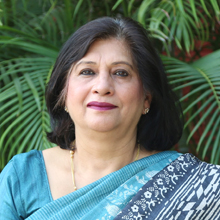
Dr Vibha Dhawan
Director General

Mr Dipak Dasgupta
Distinguished Fellow, Earth Science and Climate Change
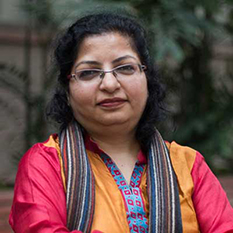
Ms Suruchi Bhadwal
Director, Climate Change and Air Quality
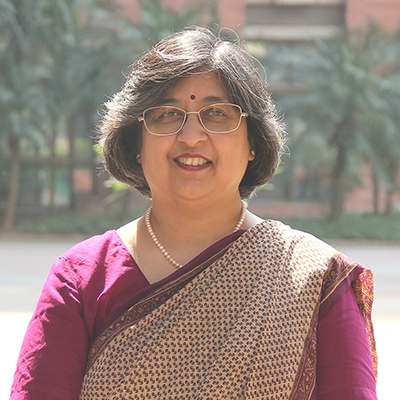
Dr Ritu Mathur
Director, Energy Assessment & Modelling
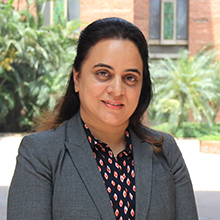
Ms Shabnam Bassi
Director, Sustainable Buildings
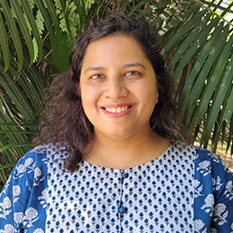
Dr Shailly Kedia
Director, Sustainable Development and Outreach
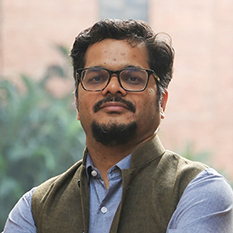
Dr Manish Kumar Shrivastava
Associate Director, Earth Science and Climate Change
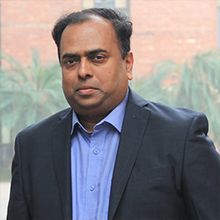
Dr Amit Kumar Thakur
Associate Director, Social Transformation and CSR
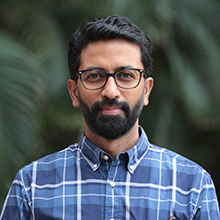
Mr Sharif Qamar
Associate Director, Transport and Urban Governance

Dr Syed Arif Wali
Associate Director, Centre for Sustainable Land Management

Mr Arupendra Nath Mullick
Associate Director, TERI Council for Business Sustainability
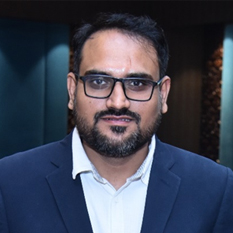
Dr Arunendra Kumar Tiwari
Fellow, Electricity & Renewables
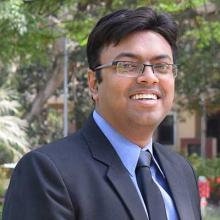
Mr Akash Deep
Deputy General Manager, Sustainable Buildings

Mr Sayanta Ghosh
Associate Fellow, Land Resources

Mr Rachit Kumar
Associate Fellow, Land Resources
Videos
Meet us at Booth 30 from 10 to 15 November at COP30, where TERI and GRIHA Council will showcase their ongoing work on promoting sustainable development.

